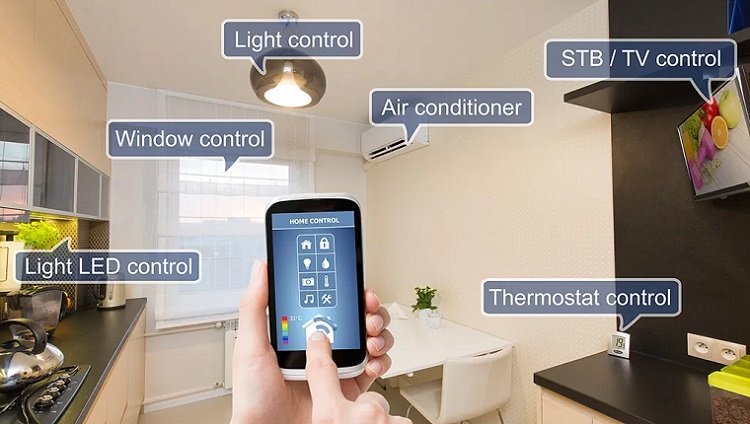
Are you concerned about the privacy challenges of your IoT devices?
Amer Owaida, Security Writer at ESET discusses the results of an ESET survey conducted recently with of thousands of people in North America about how they perceive the privacy and security of their smart home connected devices  The alarm is ringing. Half asleep, you scramble for your smartphone on the nightstand, to snooze it for at least a few more minutes. Drowsily, you shuffle to the bathroom and ask your voice assistant to play your favorite shower song and turn on the coffee machine. Then you ask it about the weather and then to play your daily podcast while you get ready and have breakfast. Your GPS notifies you it’s time to leave and mirrors your smartphone’s screen onto the car’s multimedia system.
The alarm is ringing. Half asleep, you scramble for your smartphone on the nightstand, to snooze it for at least a few more minutes. Drowsily, you shuffle to the bathroom and ask your voice assistant to play your favorite shower song and turn on the coffee machine. Then you ask it about the weather and then to play your daily podcast while you get ready and have breakfast. Your GPS notifies you it’s time to leave and mirrors your smartphone’s screen onto the car’s multimedia system.
That’s just your morning. How many interactions did you have with devices connected to the internet, just from the time you got up till you got out the door?
You’re so connected that it has become a stereotypical part of your life – you don’t think about it and you don’t dwell on it. From checking your correspondence, through tracking your health to paying your bills, everything is literally at your fingertips. A large chunk of your life is recorded in ones and zeroes and shared across your devices connected to the Internet of Things (IoT). Fascinating and yet a bit unnerving, isn’t it?
It doesn’t have to be. If you have a healthy level of cybersecurity hygiene and knowledge you can significantly reduce the risks of your data being hacked.
Ahead of the 16th annual National Cyber Security Awareness Month (NCSAM), ESET and the National Cyber Security Alliance (NCSA) conducted a survey in September to find out how careful American and Canadian consumers are about their cybersecurity when it comes to IoT and their connected home devices.
In a nutshell, their approach to cybersecurity leaves a lot to be desired to say the least. About half of the 4,000 respondents own between one to five connected devices. Yet, barely a third of them are concerned about unauthorized access to their home networks through these devices (smart TVs, smart thermostats, smart fridges, etc.). If we boil it down to individual countries, that’s about 35% of Americans and 37% of Canadians.
One in four Americans watch streaming content using a device such as a Roku or Apple TV. Of those only, around 21% are concerned that cybercriminals could target their TV and remotely access it. On the other hand, one in four Canadians prefer to watch streaming content on their computers and only a fifth is concerned about their TVs being targeted.
Turning to the device that is the nerve center of a home network, most of the people asked have never changed the default password on their routers or have no idea if it was ever changed since the installation. That’s true for 61% of Canadian respondents and 57% of American respondents.
Almost half of the respondents do not look for encryption features in the connected device they are purchasing. Yet one in two doesn’t know if the government should regulate privacy and security standards for IoT gadgets.
What most respondents agree upon is that they worry about their children, specifically the security and privacy of the gizmos that they use. This does not come as a surprise, since children are vulnerable to threats, mainly through social media, especially with their tendency to overshare.
As a parent, you can always take steps to keep your children safe online , but you are always walking a thin line between using preventive measures and encroaching on their privacy, so balance is key.
Most respondents are wary of home devices that run one of the widely known smart assistants (Alexa, Google Assistant, and Siri). Almost 60 % of them responded with ‘No’ when asked if they had a smart speaker, smart thermostat or other home assistant devices that ran one of the three. We addressed some of the underlying privacy issues in an earlier article and the associated white paper.